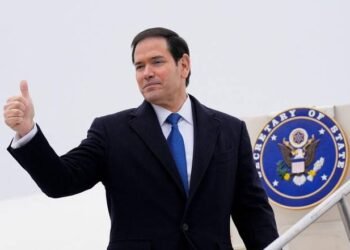Libya’s medium-term economic outlook remains positive despite the devastating floods that hit the country in September, mainly on the back of projected high oil prices, the International Monetary Fund has said.
While estimates of the damage due to the floods are not yet available, the impact of the disaster on measured gross domestic product “is likely to be relatively small given that Libya’s economy is largely dependent on oil and gas production”, the IMF said following a staff visit led by Dmitry Gershenson.
The floods in Libya inundated about a quarter of the city of Derna after torrential rain from Storm Daniel caused two dams to collapse near the eastern port city.
Government officials and aid agencies have given death tolls from about 4,000 to more than 11,000 and the floods have directly affected more than 880,000 people, according to the UN.
The economic impact of the flood will be immense, mainly due to the rebuilding of infrastructure required as well as the hit to the city’s population, analysts previously told The National.
There is an urgent need for a clear economic vision for the country, the IMF said.
“In the short term, Libya requires a budget to support policy credibility, because untargeted fiscal spending complicates the implementation of the macroeconomic policy,” the fund said.
In the medium term, the country needs an economic strategy to “diversify away from hydrocarbons and to foster stronger and more inclusive private sector-led growth”.
Hydrocarbons make up about 95 per cent of exports and account for nearly 95 per cent of government revenue.
Government spending is dominated by public-sector salaries, while subsidies and grants amount to about one quarter of fiscal spending.
Reducing untargeted subsidies will enable those resources to be used for targeted social spending and productive investment, the IMF said.
“In the longer term, structural reform efforts should focus on strengthening institutions, upgrading the anti-money laundering combating the financing of terrorism framework, and addressing corruption and governance concerns,” it added.









 United Arab Emirates Dirham Exchange Rate
United Arab Emirates Dirham Exchange Rate

